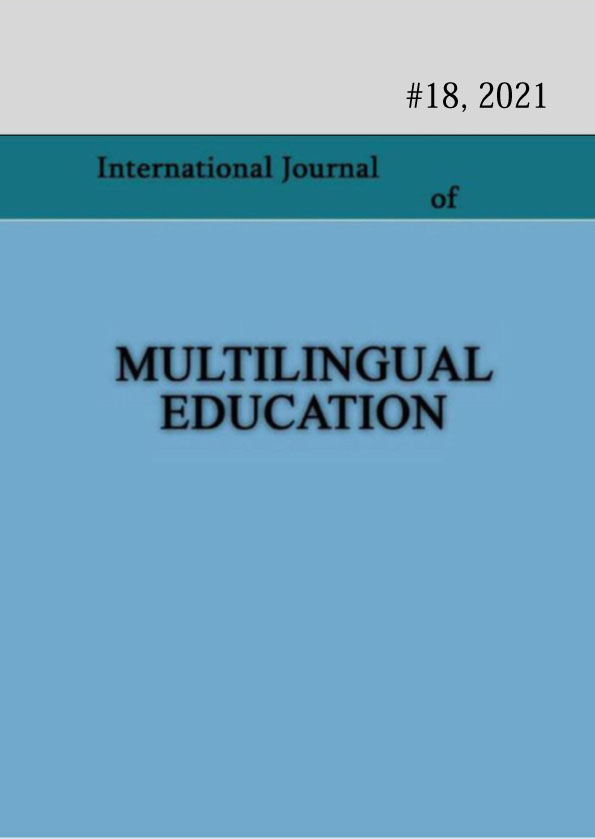Invisible Traces of Islam in the Urban Space of Rustavi: Interpreting the Religious Diversity in Post-Soviet Georgia
Keywords:
Muslim community, public visibility, diversity, religious in urban spaceAbstract
The article discusses the revelation of the religiosity of the Azerbaijani community in the postSocialist city of Rustavi and their visibility in the urban space. The subject of research is how their religiosity is expressed in the city space. The article pinpoints the attempt by the Muslim community to build a mosque in the city. This unsuccessful try is forgotten by both members of the community- the Azerbaijani and the Christian population. Everyone has forgotten about it, and the topic has become a subject of taboo. In the article, the search for the invisible traces of Islam in the urban space of the city can be linked to two pasts of the city; one is the experience of the Soviet multi-ethnicity and the more distant, historical past of the city interpreted by the Communists. It is also influenced by the peculiarities of the region, the ethno-confessional composition, and the state's attempt to control religious groups and their activities, which has a corresponding impact on the self-perception and self-representation of the Azerbaijani
community in the city. Findings presenting in the article based on the ethnographical research done in Rustavi 2019-2020.
References
Abuladze, D. (2021). Statification of Islam - issues of managing Islam by State. In S. Zviadadze (Ed.) Visible and Invisible Religion in Georgia (pp. 89-111). Tbilisi: Ilia University Publisher.
Arjevanidze, N. (2020). Cultural domination and the signs of demolishing minority culture in Kvemo Kartli region. In T. Mikeladze (Ed.), Religion, Politics and Social contexts - Collection of research studies, reports, and articles (pp. 262-305). Tbilisi. Center of Social Justice
Barkhaia, M. & Janelidze, B. (2018). უსაფრთხოების მზერის ქვეშ: ისტორია, პოლიტიკა და რელიგია პანკისის ხეობაში [Under the Security Gaze: History, Religion and Politics in the Pankisi Gorge]. Tbilisi
Davudov, R. (1972). Street of Friendship "megobrobis kuchebi". Soplis Tstskhovreba, p. 4.
Dragadze, T. (1993). Domestication of Religion under Soviet Communism. In C. M. Hann (Ed). Socialism: ideals, ideologies, and local practice. (pp. 189-198). London: Routledge.
Dumbadze, L. (2018)). რატომ ვერ შეელია მთავრობა რელიგიის სააგენტოს [Government can’t hide is notorious fondness of State agency of religion affairs]. Online newspaper Batumelebi. https://batumelebi.netgazeti.ge/news/152058/
Gvaberia, O. (1972). მშვიდობის და მეგობრობის ქალაქი [City of Friendship and Peace ]. Newspaper Socialist Rustavip. 2.
Hacıyeva, P. (2020). პლატფორმა „სალამი“ ოფიციალურად დარეგისტრირდა [Platform "Salam" Officially registered], Radio Marneuli FM Retrieved from: https://marneulifm.ge/ka/marneuli/article/26125
Kamushadze, T. (2018). Rustavi: Searching for New Identity in the City of Forty Brothers. Berlin: LAMBERT Academic Publishing.
Kobakhidze, V. (1973). ძმობის ქალაქი [City of Brotherhood]. Newspaper Samshoblo, p. 2.
Kutsishvili, K. (2013) რელიგიისა და პოლიტიკის მიმართება (თანამედროვე საქართველოში მიმდინარე პროცესების მაგალითზე), [Correlation of Religion and Politics (The case of current processes in Georgia)] collection of articles: Ethnic and Religion-Confessional relationship in Georgia: History and Modern time, Tbilisi, TSU Publisher.
Liberali, (2018). რას ამბობენ NGO-ები რელიგიის საკითხთა სახელმწიფო სააგენტოს გაუქმების გადაწყვეტილებაზე [What NGOs are saying regarding the abolishment of State agency of religious affairs]. Online Magazine Liberali. http://liberali.ge/articles/view/38165/ras-amboben-NGOebi- religiis-sakitkhta- sakhelmtsifo-saagentos-gauqmebis-gadatsyvetilebaze
Merkviladze, Z. (1967). მეგობრობის ქალაქი [City of Friendship]. Newspaper Comunisti, 1967, Octomber 7; p. 3.
Parulava, D. (2016). როგორ აფასებენ რელიგიის სააგენტოს საქმიანობას მრჩეველთა საბჭოს ყოფილი წევრები [How former members of the Advisory Board evaluate the activities of the Religion Agency]. Online Magazine Liberali. http://liberali.ge/news/view/26754/rogor- afaseben-religiis-saagentos-saqmianobas- mrchevelta-sabchos-yofili-tsevrebi%20%20).
Pelkmans, M. (2014). Paradoxes of religious freedom and repression in (post-) Soviet contexts. Journal of Law and Religion, 29(3), 436-446.
Serrano, S. (2010). De-secularizing national space in Georgia. Identity studies in the Caucasus and the Black Sea Region, 2, 5-20.
Serrano, S. (2018). Sharing the Not-Sacred Rabati and Displays of Multiculturalism. Tsypylma Darieva, Florian Mühlfried & Kevin Tuite (eds.),, Sacred Places, Emerging Spaces Religious Pluralism in the Post-Soviet Caucasus (pp. 203-226). New York, NY & Oxford: Berghahn Books..
Zviadadze, S. (2021). Declining Islam in Batumi. In S. Zviadadze (Ed.), Visible and Invisible Religion in Georgia (pp. 112-128). Tbilisi: Ilia University Publisher. Interlocutors.
Kamushadze, T. (2019, Octomber 20). Interview with student from Rustavi. (Nino, Interviewer)
Kamushadze, T. (2020, Octomber 20). Interview with Residence of Rustavi. (S. Omarova, Interviewer)
Kamushadze, T. (2012, December 5). Interview with the residence of Rustavi. (45. Year. Lady, Interviewer)
Kamushadze, T. (2013, November 22). Interview with the Chief editor of the Newspaper "Metallurgy" 1967-1986. (G. Jakhua, Interviewer)
Kamushadze, T. (2019, November 12). Interview with correspondent of Rustavi Info (internet media). (22. Years. Lady, Interviewer)
Kamushadze, T. (2020, February 19). Interview with a Religious person from Rustavi. (M. Shamilov, Interviewer)
Published
How to Cite
Issue
Section
License
Copyright (c) 2021 Tea Kamushadze

This work is licensed under a Creative Commons Attribution-NonCommercial 4.0 International License.
Copyright (c) - Authors who publish with this journal agree to the following terms: Authors retain copyright and grant the journal the right of first publication with the work simultaneously licensed under a Creative Commons Attribution-Noncommercial 4.0 International License, which allows others to share the work with an acknowledgement of the work's authorship and initial publication in this journal. Authors are permitted and encouraged to post their work online (e.g., in institutional repositories or on their personal website) prior to and during the submission process, as it can lead to productive exchanges, as well as earlier and greater citation of published work (see The Effect of Open Access). Authors may enter into separate, additional contractual arrangements for the non-exclusive distribution of the journal's published version of the work (e.g., post it to a repository or publish it in a book), with an acknowledgement of its initial publication in this journal.

